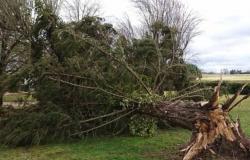The success of green taxation in Gabon relies above all on firm political commitment. The transitional government, as well as its future successors, will not only have to show their desire for transparency, but also for sustainable governance. In a country where the management of natural resources is a crucial issue, the absence of concrete measures could slow down green growth efforts. This is why the establishment of a clear and binding legislative framework is essential to guarantee a successful transition towards a more environmentally friendly economy.
Indeed, strengthening institutional capacities, often criticized, is an essential lever for making green taxation an effective tool in Gabon. Without robust institutions capable of monitoring and regulating the exploitation of natural resources, tax reforms risk being ineffective. Public institutions must be able to enforce environmental laws, track the use of green tax revenues, and ensure that these resources are reinvested in conservation and sustainable development programs.
The involvement of private actors
The private sector plays a determining role in the success of green taxation. Companies, particularly those in the forestry and extractive sectors, will need to adapt to new sustainability requirements. To do this, they must be encouraged by advantageous tax policies to adopt responsible practices. Tax breaks or tax credits for companies engaged in sustainable resource management can encourage behavioral change while increasing tax revenue for the state.
An opportunity for economic diversification
The promotion of green taxation by the World Bank represents an opportunity for Gabon to diversify its economy while preserving its natural heritage. If the country manages to reconcile economic growth and environmental sustainability, it could position itself as an African leader in the fight against climate change. Such a strategy would not only address environmental challenges, but also stimulate more inclusive growth, thereby creating economic opportunities while protecting future generations.









